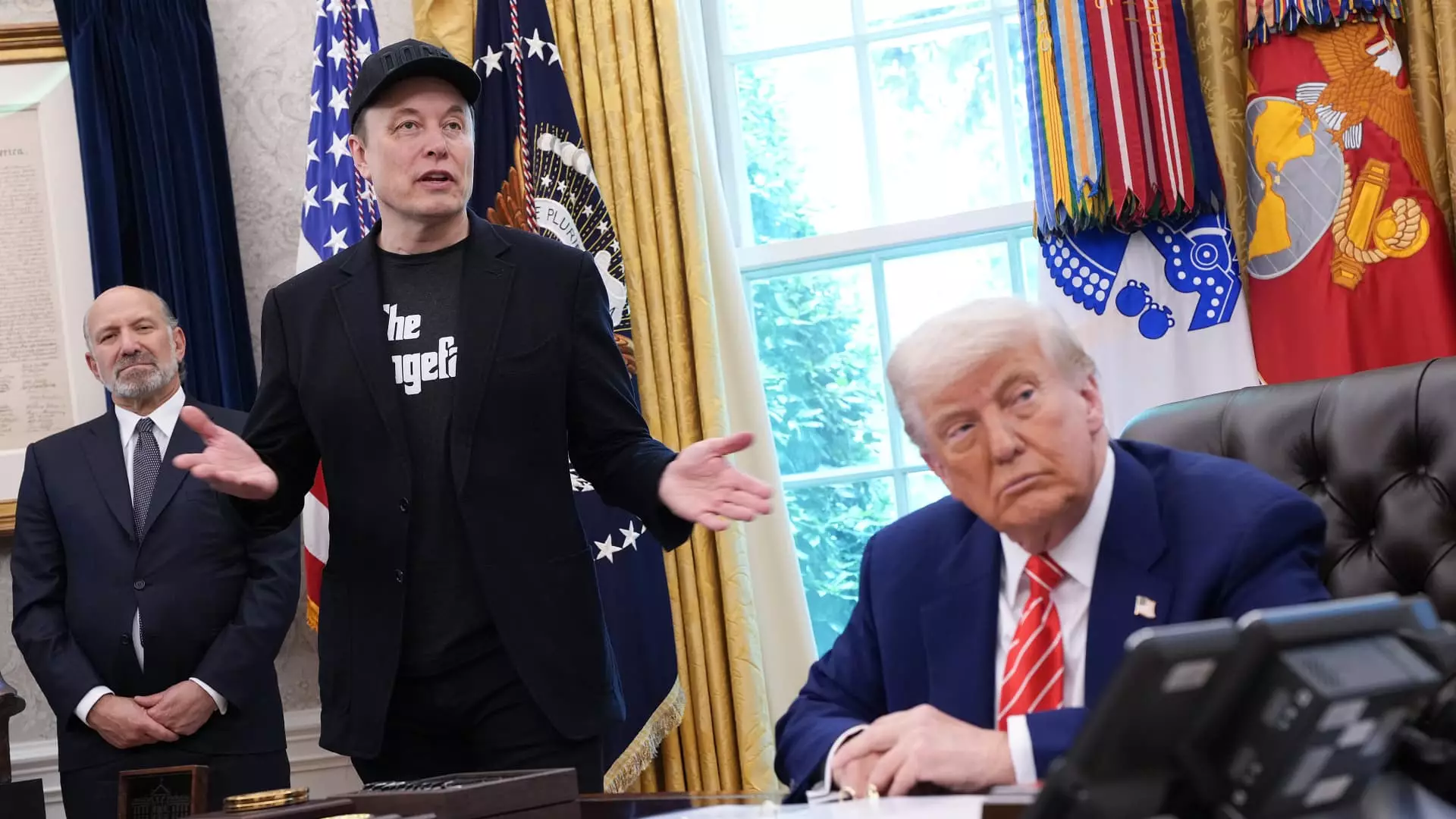In the ever-shifting landscape of political alliances, few relationships have unravelled as dramatically as that between President Donald Trump and tech mogul Elon Musk. Once depicted as close allies, the two have spiraled into an unexpected feud that underscores the fragility of political partnerships in the modern age. While Trump dismisses the feud as just another bump in the road, one must wonder if this rift signals the end of an era or merely the beginning of a new chapter fraught with complications.
Starlink and Its Political Implications
Trump’s recent assertion that he would not discontinue the use of Starlink at the White House reveals not just loyalty to Musk’s company, but also the vital role technology plays in modern governance. Starlink, with its promise of high-speed broadband access, has become more than just a service; it’s a lifeline of connectivity that can potentially shape political discourse. By opting to retain Starlink while maneuvering with his Tesla, Trump signals that, while personal relationships may falter, the need for technological advancement persists. However, it raises questions about how deeply intertwined politics and lucrative tech partnerships have become in today’s era.
The Battleground of Public Opinion
Musk’s public condemnation of Trump’s tax and spending plans has proven troubling for the GOP. As the richest individual on the planet, Musk’s influence goes beyond business and seeps into the political realm. His criticisms not only complicate Trump’s policies but also potentially alienate core supporters. This collateral damage illustrates a critical point in contemporary society: public figures are no longer isolated in their domains; instead, their opinions ripple through the ecosystems of social media and formal politics, often with unpredictable consequences.
Social Media’s Role in Amplification
In an era where a single tweet or post can ignite a firestorm, both Trump and Musk have wielded social media as a weapon and shield. Musk, for instance, initially supported calls for impeachment against Trump, an act that would ripple through the Republican party like wildfire. Yet, the deletion of his more controversial posts suggests a strategic retreat, possibly indicating that Musk values his image and business interests over continued political conflict. On the other hand, Trump’s continued references to a past camaraderie imply a reluctant willingness to leave the door open for reconciliation, should the tides turn favorably once more.
The Echo of Political Partnership
Ultimately, the relationship between Trump and Musk embodies broader themes in American politics—a system where alliances can rise and fall based on public commentary and social media dynamics. As we observe this unfolding saga, we must remain vigilant about the implications such ferocity has on governance and societal values. Do we prioritize technological innovation over loyalty? Do public giants have the power to dictate political pathways, or do they simply reflect the sentiments of a shifting electorate? These are the poignant questions that arise from the ashes of a relationship once celebrated for its mutual benefit but now serves as a cautionary tale.

